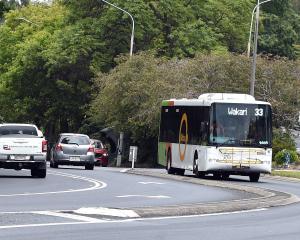Age Concern Otago social worker Marie Bennett told The Star there had been 130 referrals to the Dunedin Elder Abuse and Neglect Prevention service in the 11 months to April, up from 105 in the previous year - an increase of almost 30%.
Increasingly, victims of elder abuse were making their own referrals, with 25 self-referrals in the past year.
''As the campaign has continued each year, more and more older people are calling for help,'' Mrs Bennett said.
''Having more information allows them to say: 'This is not OK', and that's good to see,'' she said.
The number of formal referrals to the service was just a fraction of the calls and inquiries received from local people.
''The phone goes constantly with people expressing concern or looking for information. We know this is just the tip of the iceberg, but it doesn't have to be this way.
''The more people understand about elder abuse and what they can do to stop it, the better,'' Mrs Bennett said.
A worrying recent trend in Dunedin had been the emergence of several elder abuse cases relating to K2 or other synthetic cannabinoids.
These were tragic cases, as they usually involved grandchildren demanding money from grandparents, Mrs Bennett said.
''It is tragic for grandparents when this happens, as they are generally devoted to their grandchildren and will do anything to protect them,'' she said.
Ahead of World Elder Abuse Awareness Day on June 15, Age Concern has launched a new campaign, 'Always Respected, Never Abused''. The purple-themed campaign highlights that elder abuse - including financial, psychological, physical abuse and neglect - is a widespread issue in New Zealand.
Nationally, more than 1600 cases are referred to services each year, with investigations confirming elder abuse in two-thirds of cases. Of those, 62% involved psychological abuse, 50% material or financial abuse, 20% physical abuse, and 20% neglect.
Older people dependent on others are particularly vulnerable to abuse, which often occurs when there is an imbalance of power. About half of the older people supported by Age Concern in the past 10 years suffered significant health ill-effects due to abuse.
Mrs Bennett said that, as more and more older people remained in their own homes, it was imperative they were kept safe.
''In the end, that is my main focus - to ensure the safety of older people and support their right to make their own choices,'' she said.
THE NUMBERS
Age Concern's Elder Abuse and Neglect Prevention services receive 1600 referrals each year about people who may be facing elder abuse or neglect.
In Dunedin, there were 130 cases referred to the Age Concern Otago service in the past 11 months. Of those, 25 were self-referrals.
Types of Abuse:
Psychological - 62%.
Material/financial - 50%.
Physical - 20%.
Neglect - 20%.
Who is involved?:
The abused:
50% are over 80.
45% are aged 65-80.
42% live alone.
The abusers:
79% of abuse is committed by family members.
50% are adult children.
Abusers are as likely to be female as male.











